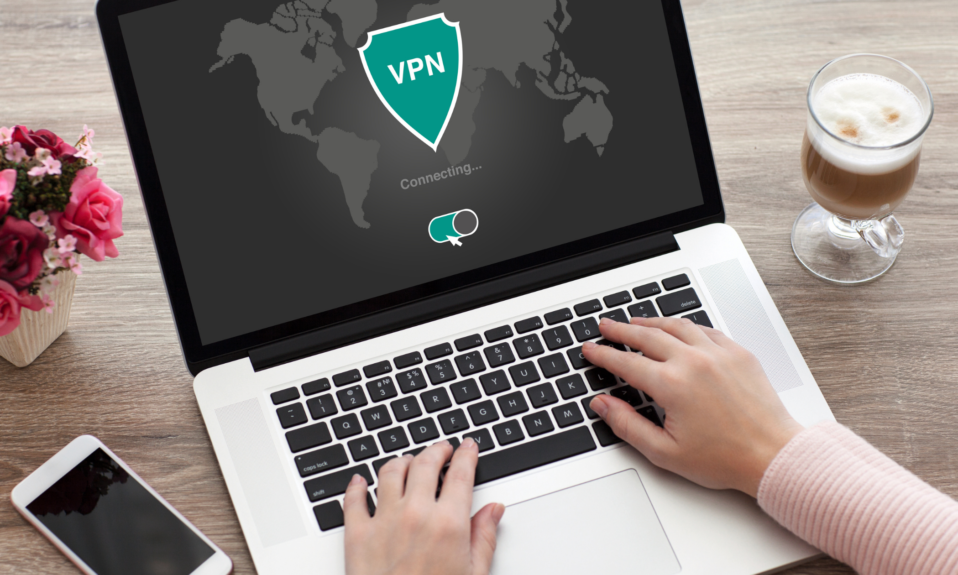
If you’ve been searching the Internet far and wide to find the answer to “Is VPN legal in India or not ?”, then you have finally landed in the right place. We’re here to answer all your questions regarding VPN usage and laws in India.
So, is VPN illegal in India or not? Is it legal? Is it banned? What’s the mystery surrounding this type of service in India? To answer this question as short as possible, you will still need a few additional facts to understand better Indian laws regarding VPN.
First of all, VPN stands for Virtual Private Network. A VPN allows you to extend a private network across a public network. This enables its users to send and receive data across various shared or public networks, making their computing protocols seem directly connected to the private network.
A VPN helps you hide your actual location and the computer you are using while entering certain websites or downloading online apps. Since you can hide your ID, location, and identity, you can understand why some states consider it illegal. However, VPN is legal in India, but there are some exceptions. Let’s keep reading more on the matter below.
- Is using VPN illegal?
- Why are VPNs used?
- Can police track VPN?
- How to use VPN in India?
- Best VPNs for India
Is using VPN illegal?
Is it legal to use VPN in India? Or is it illegal? The Indian government and its legal regulatory bodies have not passed any laws that make VPNs illegal. Therefore, it is entirely legal to use VPNs and any VPN service in India, all over its territory.
Although the country’s government does not encourage VPNs, since they have no laws making this service forbidden, Indian internet users can use any VPN. However, it is strongly recommended not to use VPNs to access illegal websites or platforms because you can quickly become a victim of cybercrime.
Usually, if you choose to use free VPNs or VPNs you haven’t heard about before, you could set yourself up to become a cybercrime victim. These suspicious VPN platforms are managed by cybercriminals that steal data from your computer after installing malicious software on your device.
It’s advised to pay attention to the software you are downloading, the terms and conditions you accept, and the company that offers the specific VPN you install on your device.
Avoid downloading any type of software, including VPNs, from websites that have no reviews online, from platforms that haven’t been recommended to you by friends, or on specialised forums. It’s the safest way to keep your computer clean and virus-free.
Hackers can easily steal your data and ask you for money to give you access back to your device. Installing an antivirus before downloading these types of files always helps, and it can prevent you from various forms of cybercrime.
Why are VPNs used?
So, is VPN legal? Yes. The answer is yes, but we can understand why you may still be confused regarding this subject. Most people do their research online to see what VPNs are used for and whether or not they are legal in India.
VPNs are mostly safe to use, especially if you’re downloading them from accredited and well-known online websites. As long as you’re not surfing around shady websites looking for a free or cheap VPN, you’re probably safe to download one of the hundreds (and thousands) of good VPNs available out there.
VPNs are virtual private networks, and they are used to hide a PC’s or a mobile device’s location. They hide your device’s ID, and they can easily make it look like you are accessing the Internet from another city, region, and even country.
VPNs are used when you are trying to access a website that is not allowed in your country or trying to view video, photo, or written content that has not been made available in your area.
This happens with Youtube channels that don’t allow you to play their videos in India. Most media that operate like this come from the United States, and they usually broadcast sporting events which you have to pay for.
Using a VPN, you can even choose (depending on VPNs and on the price plan you subscribe to) the country you want to appear from. So, let’s say that you are trying to access a website from Germany, but they do not allow visitors from India. You can click on your VPN to turn it on and select the option to change IP, so it will look like you’re coming from Berlin, Munchen, Hamburg, or any other German city.
It’s simply that easy. VPNs help you access any form of content that isn’t available in your country. It allows you to have access to more learning resources, which would otherwise remain geo-blocked for India.
Most hackers use VPNs, as they are always trying to hide their exact location. But some people also use VPNs to do illegal things. This is why the controversy surrounding VPNs is such a current and popular subject.
Hackers will use VPNs to gain illegal access to servers, websites, and devices from India, and from anywhere in the world, for that matter. That’s why some politicians advocate for a complete ban on VPNs all over India.
No matter the side you find yourself on, pro or anti VPNs, as long as this service is used without breaking the law, stealing data, or gaining illegal access to other devices, we see no harm in downloading such software.
VPNs have plenty of advantages, as well as many disadvantages, especially if you’re downloading one from unverified publishers. Google and any strong antivirus usually help a lot with this issue because they will tell you straight up if a publisher or a software developer has been verified by them or not.
After they give you the verdict, you can decide if you still want to download that VPN or not. The decision will be entirely in your own hands, so be sure to be responsible.
Can police track VPN?
Police and national authorities can track a VPN, but this doesn’t mean that that’s an easy process. The only easy part about it is that they have the law on their side, and they don’t have to fear any legal consequences from trying to crack a VPN.
The most famous case about VPN tracking is the one revealed by Edward Snowden. He publicly declared that the NSA, the United States’ national spying agency, had breached security protocols several times to obtain access to encrypted internet traffic, including encrypted traffic from VPNs.
Since then, Edward Snowden has had to flee the country, and he will be arrested if he steps foot on American soil. The current location has not been revealed, and it is believed that he received asylum in Russia.
Given these extreme sanctions we see being given out by one of the world’s biggest democracies and the planet’s leading economic power, we can understand why VPNs are such a hot topic.
The Indian police can track your VPN, but they don’t have as many resources as other countries. This means that they will only investigate further into the issue if they have reason to suspect that you have been using a VPN to commit cybercrimes or access illegal websites from India.
If you’re using a VPN for your daily internet browsing and you want to keep your data protected and encrypted, then you’re safe. However, if someone believes you have suspicious online behaviour, you never know who could be investigating your traffic.
Stay on the safe side by only accessing legitimate websites and by never downloading suspicious software. Use an antivirus simultaneously with your VPN (when possible), and you can rest assured that your device is protected against cybercriminals and hackers.
How to use VPN in India?
If you’re interested in learning how to use VPN in India, then you’ve landed in the right place. We’ve done our due diligence and research to help you better understand the legal status of VPNs in India, what VPNs are and how to use them correctly.
First of all, you should start reading a couple of online reviews to see which VPNs are the best for India. We’ll give you a few options in the following rows, but let’s focus on using a VPN connection in India.
So, after you have read up on all the best VPNs available for Indian internet users, you should select a list of 3 to 5 software providers. After you have completed this shortlist, start by analysing the most important criteria for you.
Let’s say that the price per monthly subscription is the most important thing for you. Then you need to choose the top three VPNs with the cheapest monthly fees. This way, you’ve made a list even shorter, and now you only have three options to choose from, as opposed to twenty or thirty, when you initially started.
Out of the three remaining VPNs options you now have on your list, you can select the following essential selection criteria for your needs. If you’re looking for a VPN that will offer you the option to hide your IP in many other countries, then choose the software that provides the most national IPs.
If you’re looking for a VPN that offers the highest protection and encryption for your data, then choose the one that gives you the most options in this area. After lined up all the VPN providers you want to use and placed all the puzzle pieces together, you should have no problem deciding which company to use.
Choose the fastest, cheapest and most various IPs offering VPN on the market, and you’ll quickly start browsing the web in a safe and secured way. Also, if you ever find a good bundle pack that offers VPN services together with a solid and efficient antivirus, be sure to get them both because otherwise, you will have a hard time using both of them at the same time.
Not all antiviruses work while you’re having your VPN turned on, and the same goes the other way around. If you haven’t downloaded the two of them together, then be sure to turn off one of them before turning the other one on.
This way, you can use each software properly without significantly slowing down your computer or mobile device’s speed. Let fast, safe and secure web browsing begin. Now let’s get a little deeper into the subject by providing you with the best VPNs for India in 2021 (and probably for the years to come).
Best VPNs for India
Are you looking for the best VPNs for India? Of course, you are. That’s why you’re here, right? You’re here because you want to learn how to use a VPN, you want to know what VPNs are, or you’re simply looking for the best VPNs to use in and for India.
If you’re here for any (or more) of those reasons, then you’re in the perfect spot because our editors have done thorough research to find the best VPNs for Indian and Indian internet users.
Let’s start with the best VPN for India, which is Sure Shark.
Surf Shark is the best VPN for India.
This award-winning VPN has been created with a mission in mind. The founders of Surshark describe their vision statement as a dream for everybody to have control of their digital data. “Our dream is a world where people have full control of their digital lives. We humanise digital security to make it accessible to all.”
The company started back in 2018. That’s when the start of the development & launch of surfshark.com began. After that, they introduced browser extensions, apps for Android, iOS, Windows macOS, Android TV & Fire TV. The same year, they added a Feature boost: CleanWeb, Kill Switch, MultiHop, Whitelister (split tunnelling), and they completed the 1st independent audit by Cure53.
In 2019, Surfshark Alert & Search launched and presented the 1st Digital Quality of Life (DQL) index. They released a free app TrustDNS, to get a Seal of Approval from AV-Test and finished the year by introducing in-built GPS spoofing on the Android app.
In 2020, Surfshark released its two-factor authentication (2FA) feature and became a Founding member of the VPN Trust Initiative. They also joined the Electronic Frontier Foundation, Internet Society, Access Now and presented the 2nd edition of the DQL Index. One of the most significant steps of the year was moving to a 100% RAM-only server network and introducing WireGuard®.
So if you’re looking for the best VPN for India, Surfshark is the way to go because it offers a lot of top-notch services and features such as:
- Browse privately
- Hide your location
- Block ads and malware
- Escape restrictions
- Stream privately
- and so much more
Other excellent VPNs to use in India are:
- NordVPN: which is considered extremely good by Indian users for speed & privacy
- CyberGhost: is the VPN with the most servers for India
- ExpressVPN: is the best premium VPN for India
- TorGuard: is one of the best VPNs for torrenting all over the country
- IPVanish: is one of the best VPNs for multi-device support and has a few extra unique features
- FastestVPN: is one of the best VPNs for streaming services.
Feel free to read up more reviews about all the most popular VPNs available in India and choose the one that works best for you. Try to go over a couple of Youtube tutorials before deciding to sign up for a VPN because not all of them may be user-friendly, and you could wind up paying for something hard for you to use.
Check several videos before choosing the option that works best for you, and always look for deals and promos, as most VPNs offer discounts and bonuses upon signup. Subscribe to their newsletter, and you’ll continuously be updated when they change prices or have flash sales.
What’s the first reason why you would consider using a VPN? How many times have you found out that your data has been exposed online? Have you ever been a victim of cybercrime? These are all problems and questions solved by downloading safe and secure VPN software and browsing the web.
Remember, you should always use any VPN services responsibly and never access illegal websites in India.
People Also Ask
There are many unanswered questions about VPNs in India and their legality, and we’re going to clear the air regarding this specific subject. Below you will find all the answers you have been searching for all along.
Is ExpressVPN banned in India?
No, ExpressVPN is not banned in India, but the Indian government doesn’t encourage their use like most VPNs. VPNs are not illegal in India, but the country’s representatives firmly recommend not using them as they are used mainly for accessing illegal websites or platforms. The Indian government doesn’t encourage any programs, software, or websites that let people hide their IP, location, and identity.
Which country’s VPN is fastest in India?
ExpressVPN is the fastest VPN in India. You can use it from India or your own country, and you’ll feel no difference in loading times or web browsing speeds. ExpressVPN has high-speed connections and servers in over 90 countries around the globe, and you can easily access geo-blocked and restricted areas by using it. They also offer a 30 day free trial period and three months for free if you sign up for an entire year.
Can the government crack a VPN?
Yes. Governments have the capacity and resources to crack a VPN, but it is not an easy task. Taking advantage of existing VPN vulnerabilities is something all governments can do, especially since the law is on their side. Edward Snowden reported that the United States of America Spy Agency, also known as the NSA, had cracked the encryption protecting large amounts of internet traffic in the past, including VPN traffic.
Bottom line
In conclusion, is VPN legal in India? Or is VPN illegal? This is the problem with most Indian laws and regulations, as they either leave room for interpretation or are outdated. In some cases, they are both.
This causes such general confusion throughout the nation, especially regarding laws that focus on online services and products, such as VPN, cryptocurrency, trading, and the likes.
Although VPN services are legal in India, there have been many recorded cases where people and companies have been on trial for using a virtual private network. In some situations, judges don’t understand what VPN is and how it works, which leads to unfair practices.
You are legally allowed to use VPN from your home or workplace, but you always have to be careful to use it for websites that legally operate inside the country. This article is strictly informational, and you should always use VPN services responsibly, without breaking India’s national and state laws. So, are you ready to start browsing the Internet safely and securely from now on? Which VPN are you thinking about using first? Have you tried VPNs before?




